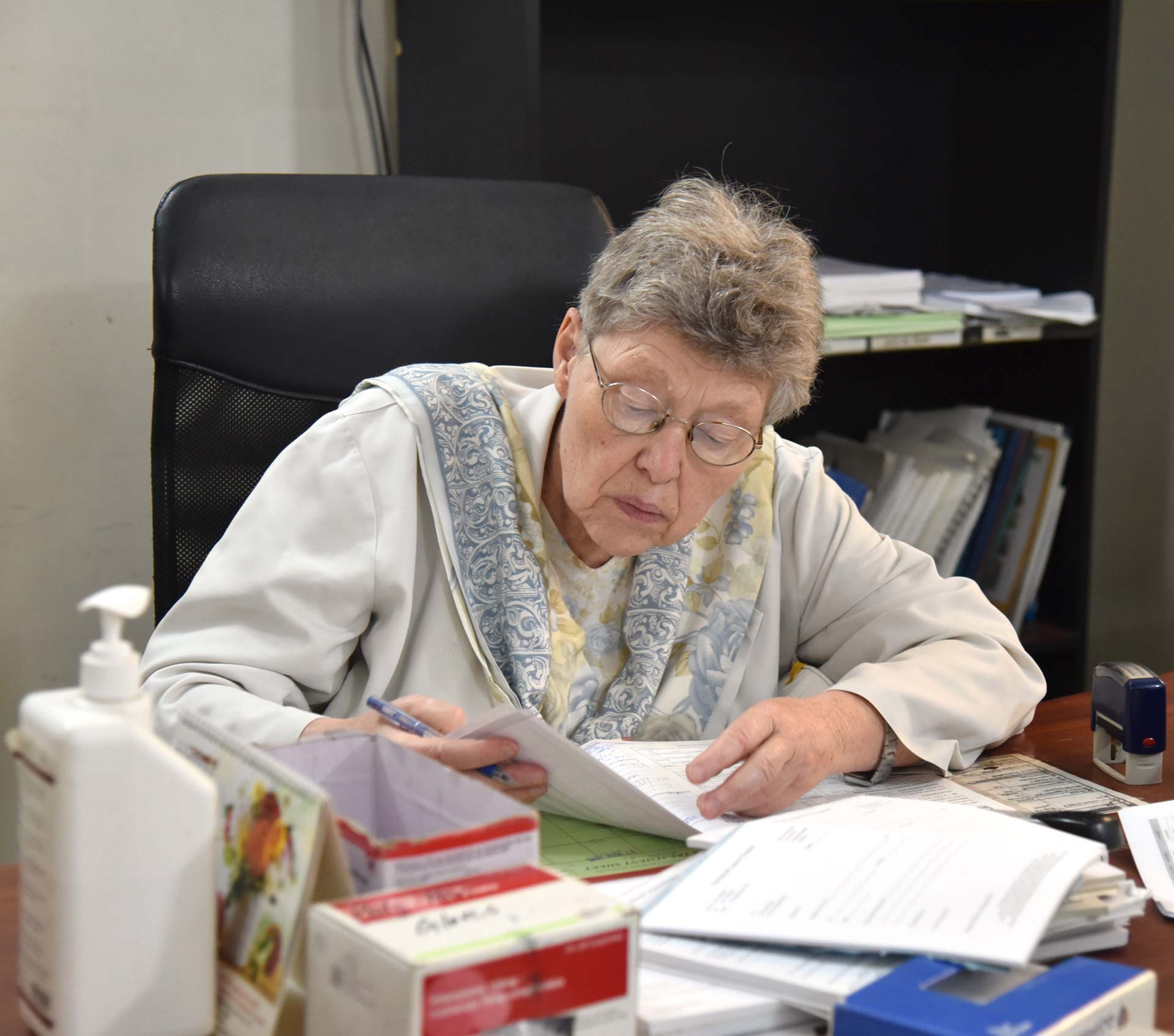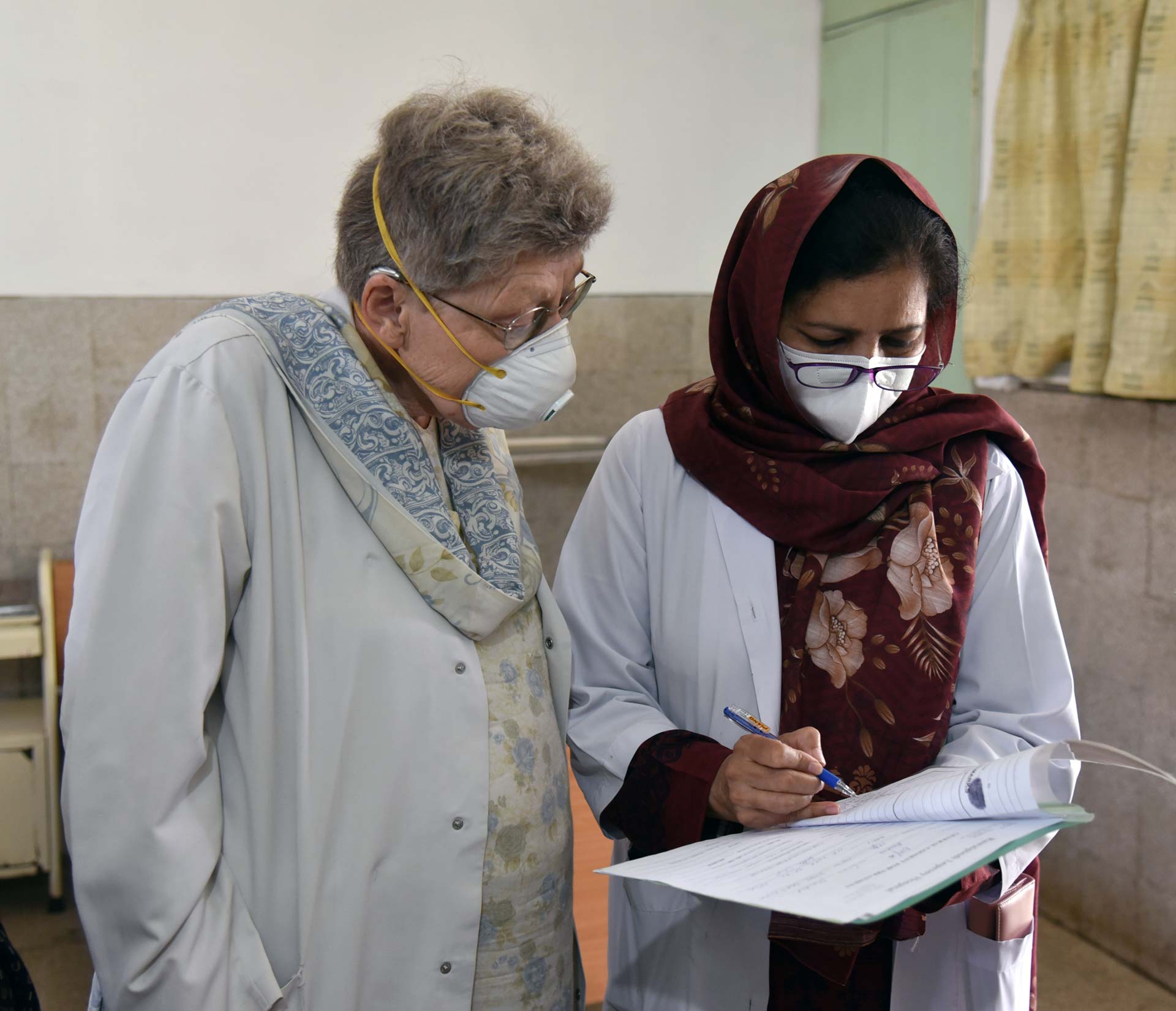The Medical Director of the Rawalpindi Leprosy Hospital in Pakistan recalls what inspired her, 4 decades ago, to leave Germany and move 6000 km to serve the most vulnerable

9 October 2025, Islamabad, Pakistan – Islamabad, Shortly after completing her medical studies in 1988, Dr Chris Schmotzer, a German physician, travelled to Pakistan to serve the underprivileged, and decided to stay. Four decades later, she serves as the Medical Director of the Rawalpindi Leprosy Hospital. In March 2025, in recognition of her tireless service, Dr Schmotzer received the prestigious Sitara-i-Quaid-i-Azam award. Five years earlier, in 2020, she was a recipient of the German Order of Merit.
We had the privilege of interviewing Dr Schmotzer about her remarkable life and dedication to protect and save lives. Below are edited excerpts of the conversation.
What motivated you to work to combat leprosy and tuberculosis?
Actually, women who had been working in Pakistan invited me to come to the country in the 80s, where there was much more leprosy than nowadays.
And what brought you work in Pakistan and join Rawalpindi Hospital?
When I was a postgraduate medical doctor, I was already thinking that I wanted to work in a country where more medical services were needed. So, I was thinking that I would not stay in Germany but go to another country. After my post-graduation, I had a chance to come to Pakistan. People said to me: ‘Please come and help us to get the leprosy programme ready for the future’.
What is your main role in helping patients?
I think patients need a lot of different types of help. Patients need good diagnostic treatment and they also have social needs. For me, it is very important that we work as a team. It is not a one person show. Medical work is teamwork. You not only see the patient, or the disease, or the medical test, but also the person in their environment, with all its aspects and problems.
How do you work with communities to promote healthy habits?
I think this is a very important point. We all know that a lot of diseases are due to unhealthy habits. Take eating habits, for example. Often people consume too many sweets and fast food despite much healthier foods being available. Leprosy is a disease which is treated at the community level and our field teams are trained to give health education.
What are the main challenges working in a position like yours?
One challenge is that all staff members have to do their jobs. This is very important. Sometimes people think wow, the doctor is very good. And yes, doctors should be well qualified, active and up to date with the latest knowledge. But if the person who is cleaning is not doing the job, then the work of the doctor is also compromised. This is one of the main challenges, building a strong team. What I strive for is that staff members work and help each other. Another issue is health awareness.
Could you tell us more about the challenge of health awareness?
For example, starting tuberculosis treatment is very simple. It is completing the treatment that is the real challenge. You have to tell the patient that they need to take the medicine for a long time. When a patient is already feeling well, they think why do I need more medicine. This type of health awareness must be raised, and this can be a challenge.
What are the key lessons you've learned in the course of your career?
First is to always give patients the best possible treatment. When the treatment is good and the patient improves, they will naturally become advocates. Second, the health care provider has to be flexible. We should never forget that patients have a lot of other issues in their lives. For example, if a patient says they can only come in the afternoon to get their medicines because in the morning they have to be at their workplace, then we should be flexible. As a result, issues like not adhering to the treatment become less common. Third, it is very important to deal with side effects. Any medicine can have side effects. This is a medical fact, and we should take the patient seriously. We should not say that this is not a problem. If, for example, a patient has pain, then we need to give him something or at least show that you take him/her seriously. I think this also encourages the patient to follow medical advice.
Why is it important to leave no one behind?
We must always remember that leprosy and TB are infectious diseases. Any patient who is not treated can infect other people. Even if we are not approaching the issue from a compassionate point of view, we should see that everybody gets the best treatment possible. We should do so in our own interest, in the interest of our communities and in the interest of the country.
Looking ahead, what are your hopes for the future of leprosy and tuberculosis treatment in Pakistan, and how do you see WHO contributing to that vision?

WHO’s role as a coordinating body is very important. We are very grateful that WHO trains us as health professionals. The medical field is constantly changing, making training a very important matter. There are things that are new, that can be improved, and medical professionals should have the best possible knowledge. In this regard, WHO support is very important. WHO also coordinates between different partners. It is important that all the people who work in a field follow the same guidelines.
What has been the most rewarding aspect of your work?
The most rewarding aspect for me is seeing patients getting well again. There is a little girl who came from the Pashtun area, who did not speak English or Urdu. Her mother also did not speak English or Urdu. She had tuberculosis affecting the lower leg, known as osteoarticular tuberculosis. She was very sick and needed long-term treatment. In the beginning, she was unable to walk. Now, with the right treatment and management and physiotherapy, she is totally fit again. She is like any other 6-year-old, running around, being happy; greeting me very nicely whenever she comes to the hospital. This is so rewarding.
Written by Maryam Yunus
Edited by José Ignacio Martín Galán








